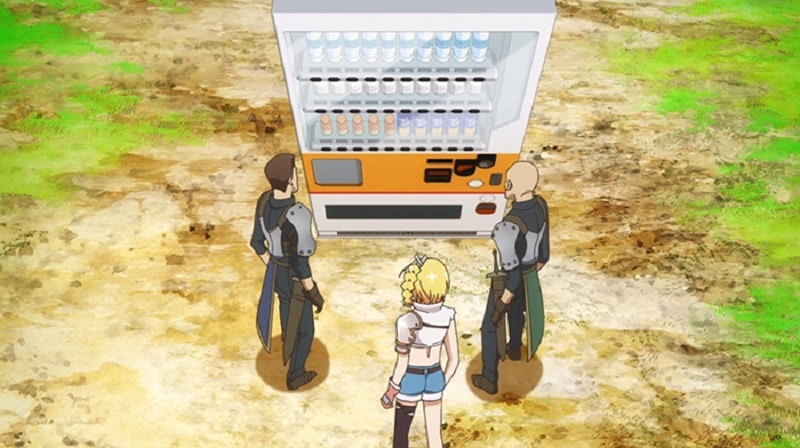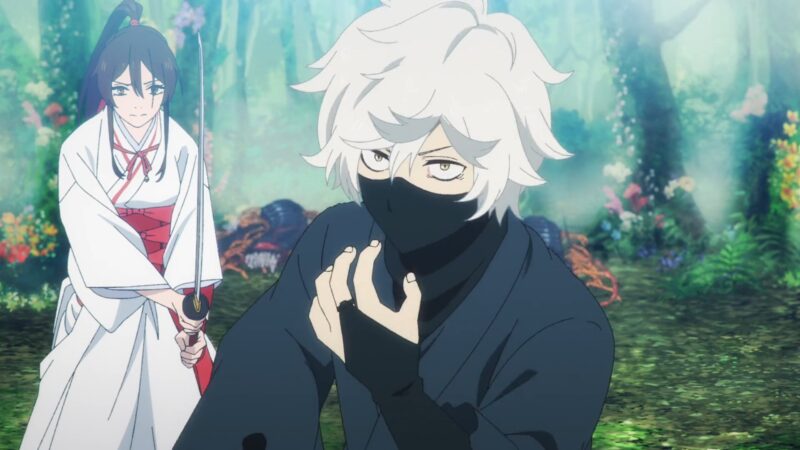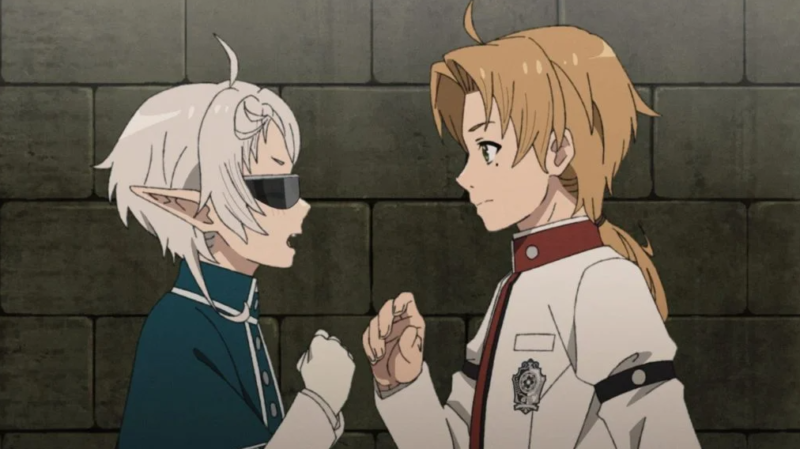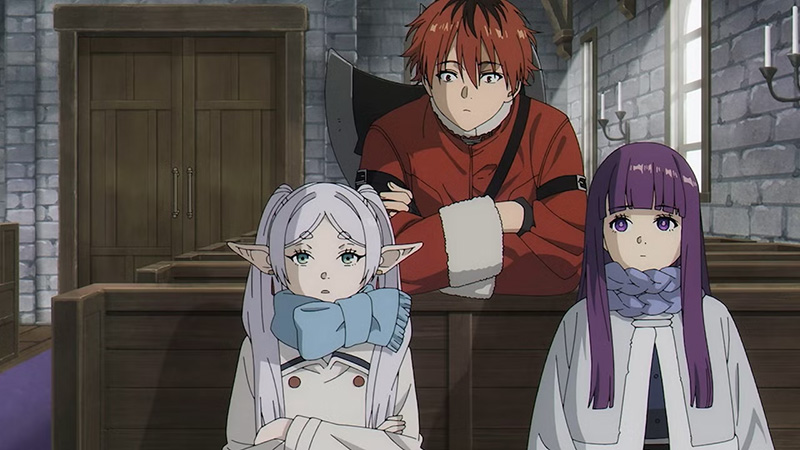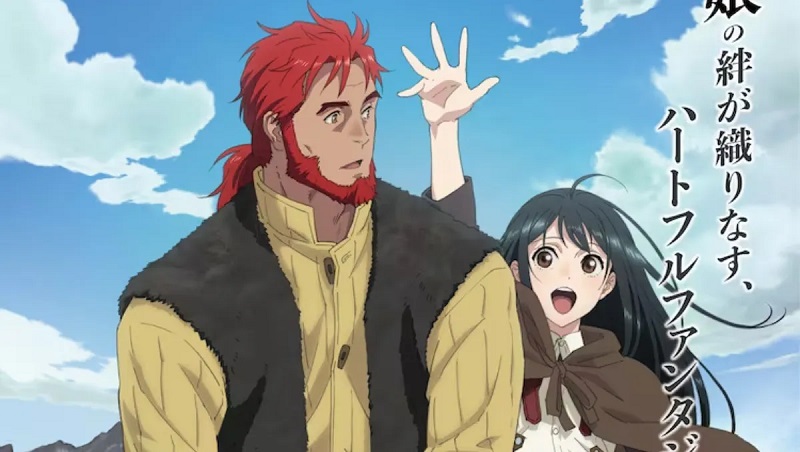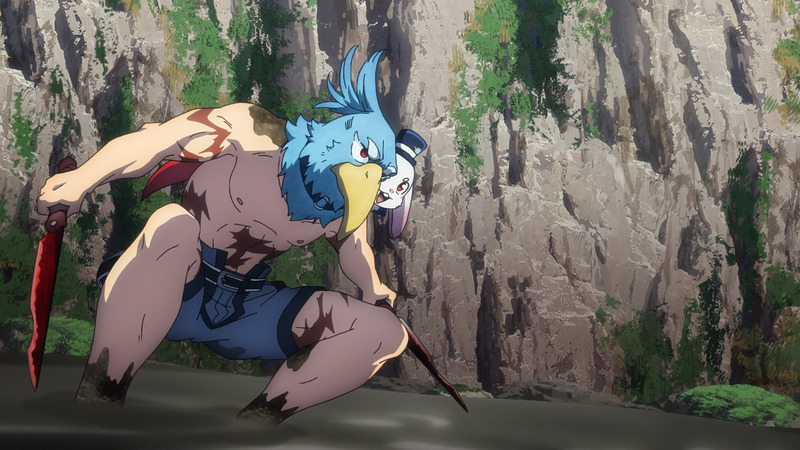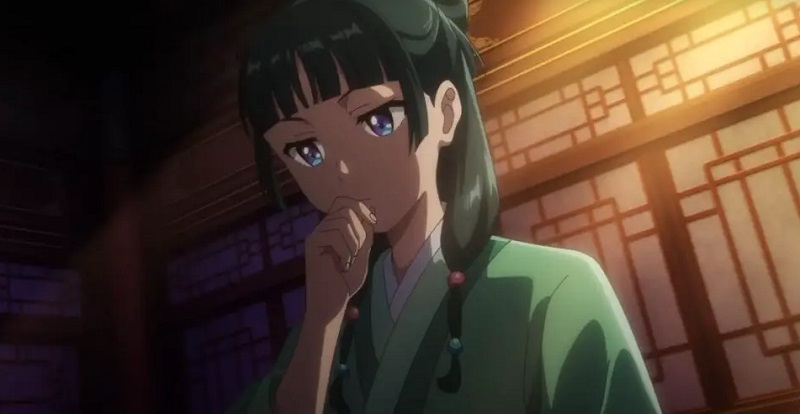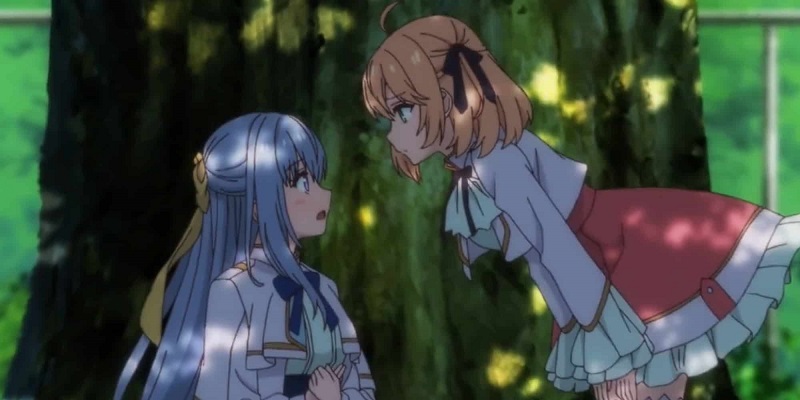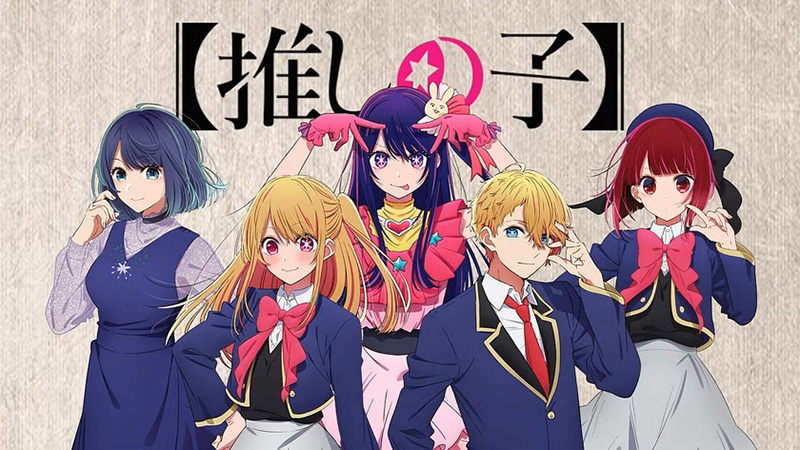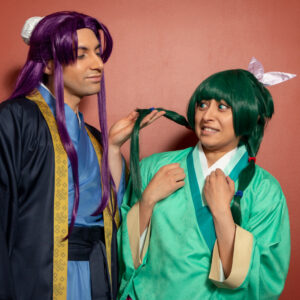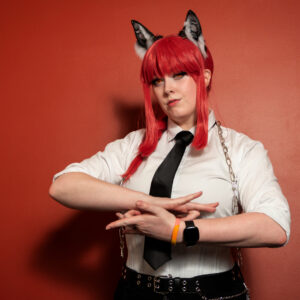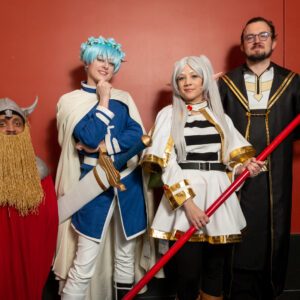My Favorite 10 Anime Of 2023
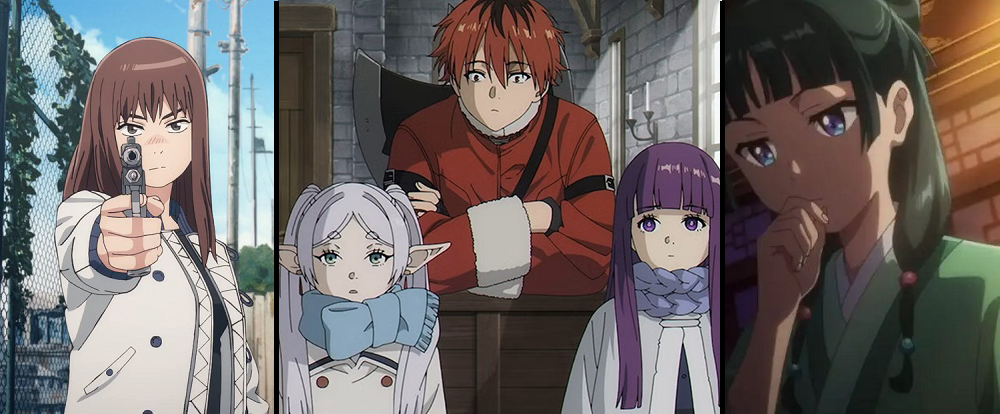
This year certainly had its share of absolute stinker anime shows, from the disappointing adaptation Atelier Ryza: Ever Darkness & the Secret Hideout The Animation to the downright unpleasantly sexual My Life as Inukai-san’s Dog. Also in 2023, thankfully, we were treated to some surprisingly good anime that on the face of it should have been terrible, and some absolute best-of-the-decade contenders. Below, in no order, are my 10 favorite anime from this year. Most are new to anime, but I had to put in a couple of returning shows.
Some may notice and want to comment on what is not on this list — Demon Slayer: Swordsmith Village Arc and Vinland Saga Season 2. Unlike the previous “one arc, one season” run of Demon Slayer, I found the Swordsmith Village arc to be somewhat disjointed and a bit sloppy. Enough so that I’ve yet to finish it. And the second season of Vinland Saga, one of the best anime ever made, was as many have pointed out, glacially slow. Amazing writing, beautiful art and animation, but it was maybe eight episodes of content stretched out over 24 episodes.
On to the list.
Heavenly Delusion
We’ll start with one of the most amazing post-apocalyptic, science fiction mystery anime shows I’ve seen. It deals at every level with issues of identity in smart ways, while telling an often funny, often tragic and always exciting tale of two young people wandering the remains of Japan following the appearance 15 years prior of terrifying man-eating monsters. If it wasn’t for a very difficult to watch final two episodes, Heavenly Delusion would be an instant contender for anime of the decade. That said, those two episodes are why the term Content Warning was invented.
Reborn as a Vending Machine, I Now Wander the Dungeon
With a light novel title like that, Reborn as a Vending Machine should have been absolute garbage. And while nobody at the studios AXsiZ and Studio Gokumi are going to win any animation awards, the series puts a pleasant and surprisingly smart spin on the incredibly worn out “isekai as a (blank)” story type. The writers establish ground rules for what the poor reincarnated vending machine-obsessed man can do as a vending machine and then — shockingly — stick to it. This forces them to think of clever ways to use the limited abilities of the vending machine (called Boxxo) to defeat the worst monsters of the dungeon. Boxxo is no Kirito, is what I’m saying.
Hell’s Paradise
Brutal action, gorgeous and creepy art, fascinating characters and sakuga for days made Hell’s Paradise one of the rare shows that had me chomping at the bit for the next episode at the end of each. Ultimately the mystery of the island the main character and his many companions and competitors travel to is — as much as we’ve seen in just one season — a bit underwhelming. The journey to get to where we leave things, however, is a surprising, exciting thrill ride from start to finish. Much more surprising than the island’s mystery is the mystery of the main character, Gabimaru the Hollow, which we just start to get glimpses of by the end. Season 2 has been confirmed but no date has been announced. Based on a completed manga with 127 chapters, I hope they adapt all of them into four or five seasons.
Mushoku Tensei II
How do you top one of the best anime first seasons ever? Give the main character Rudeus Greyrat PTSD and erectile dysfunction. The latter is occasionally played for laughs, but mostly treated as the serious problem it would be for a young man not yet out of his teens. The former is one of the best, most emotional affecting portrayals of PTSD I’ve seen. Last year’s Bocchi the Rock had fun with showing us Bocchi’s panic attacks — this season of Mushoku Tensei portrays Rudeus’ attacks in a way that has them land like hammer blows. However, once again Content Warnings are needed. Rudy is growing as a person, but still clearly has a long way to go. And at his lowest, Rudy even deals with suicidal ideation. If you have grown to like Rudy as a character at all, this is a tough season to watch at times.
Frieren: Beyond Journey’s End
Calling it right now — barring the show completely belly flopping the landing, Frieren is the anime of the decade so far. With a director from the aforementioned brilliant Bocchi the Rock and background artists from Studio Ghibli films, Frieren is one of the most beautiful, melancholic high fantasy series ever animated. The premise is simple: What if, decades after the party of adventurers have defeated the big evil of the world, the elf mage realizes too late that she didn’t adjust her sense of endless time to match the short lifespans of her human companions. If you’ve ever wondered what Elrond’s sons must have felt like sitting alone for years in the empty halls of Rivendell after almost all other elves had sailed to the Undying Lands, this anime will let you know. Which isn’t to say it is a downer. But even the funny or exciting moments are colored by that background of melancholy.
My Daughter Left the Nest and Returned an S-Rank Adventurer
In contrast to the almost ethereal beauty and melancholy of Frieren, the series My Daughter Left the Nest and Returned an S-Rank Adventurer is a low-key, feel good fantasy series with competent but pretty plain design and animation. Wait, before you think this is the latest “Reborn as a Pharmacist” or “I Made Slimes My Laundry Slaves” or whatever, S-Rank Daughter is not an isekai and is way more like a fantasy novel than a JRPG. If Frieren is The Lord of the Rings, S-Rank Daughter is The Hobbit — exciting and fun without the world-ending stakes that high fantasy works have to have. And Belgrieve may be anime dad of the decade.
Shangri-la Frontier
Lots of people have made this comparison but it holds true: Shangri-La Frontier is what Sword Art Online wishes it was. The main character, known as Sunraku in every game he has played, is as good as he is at deep-dive VRMMO games because he has spent years playing the worst of the worst, and defeating them. He is not Kirito, who defeats the final boss of Sword Art Online through the magic of … I dunno, will power over hard coding? Better still, Sunraku gets his ass handed to him early on in the series, and while he complains about how it has affected him, he also absolutely loves the challenge it presents. You get the impression the only reason Sunraku doesn’t dominate this near-future world’s e-sports leagues is that it would take time away from his love of playing and beating the most janked, broken games he can find. The comedy is excellent, the other characters a lot of fun and I am looking forward to more of Sunraku’s adventures in his first ever AAA game experience, the eponymous Shangri-La Frontier.
The Apothecary Diaries
Sure, Frieren may be in contention for anime of the decade, but The Apothecary Diaries is stiff competition for anime of the year, all on the strength of the main character Maomao. In a nebulously defined historical imperial China, 17-year-old Maomao is kidnapped and sold into indentured servitude at the imperial palace. Ever the pragmatist, she figures the best path is to hunker down and get through her years of slavery as a lowly washer maid. Unfortunately, as the whip smart and well-educated apprentice to her apothecary father, Maomao can’t resist helping out when two of the Emperor’s favorite concubines, and their infant children, become very ill. What follows is one of the best-written mostly episodic mystery series I’ve seen. And Maomao is one the best characters in anime, man, woman or other. In part because, while the stories can be complex, Maomao is so not. If Frieren is complicated, Maomao is as complicated as a hammer, and just as blunt.
The Magical Revolution of the Reincarnated Princess and the Genius Young Lady
Technically an isekai series, Princess and Genius is basically a fantasy story since the main character Anis (the Reincarnated Princess of the title) barely remembers her previous life, mentions it maybe a couple times in the first episode, and then it is almost never brought up again. Instead we get a solid yuri story full of political intrigue and magical action. Oh, and unlike so many lesser isekai anime, Anis isn’t overpowered through some magical gift from the gods. In fact, she can’t use magic at all, and has devoted her life to developing magical device technology that would allow her to experience what mages get to experience. When she meets the magically gifted Euphy (the Genius Young Lady) she is both instantly smitten and sees a valuable partner for her research goals. While the series can get sentimental, it never descends into schmatlz, and the two leads face their challenges with well written ideas and resolve.
Oshi no Ko
If you haven’t watched Oshi no Ko yet, first, what ails you? And second, I really don’t even want to describe the story at all, for fear of ruining one of the most most surprising, twist-filled intriguing anime shows in years. Basically, it’s the story of a 15-year-old idol performer and the twins she decides to carry to term and hide from the public. It is an unvarnished and uncomfortable look at the reality of various aspects of the Japanese entertainment industry, and not just the idol space. While that may sound interesting but mundane, Oshi no Ko pretty much kicks mundanity out the window in its very first episode. It delivers as many WTF moments as a Junji Ito adaptation, while mostly remaining grounded in the real-world slog of Japan’s rough entertainment business. And it has the best OP of this year, “Idol” by YOASOBI.
If you like our work and want to show your appreciation, feel free to tip us at Ko-fi or become a patron on Patreon.


